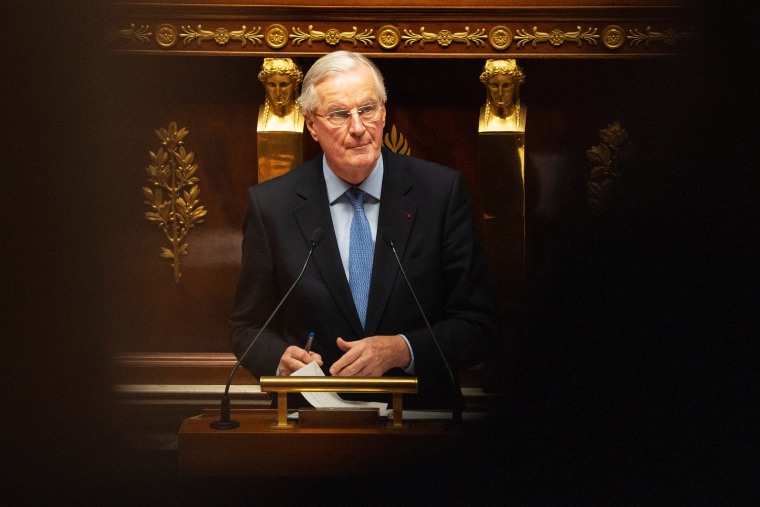
Paris Following a no-confidence vote that brought down his government, Prime Minister Michel Barnier submitted his resignation on Thursday, casting a shadow over the festivities as French President Emmanuel Macron got ready for a weekend of celebrations focused on the reopening of the Notre Dame Cathedral.
In France, the EU’s second-largest economy, Barnier’s weak parliamentary alliance was the first to collapse in almost 60 years. Barnier was the French prime minister with the shortest tenure, having been appointed to the position by Macron only three months before to the vote against him. Until Macron names a new prime minister, Barnier will continue to serve in a caretaker capacity.
With the most recent incident throwing the country into even greater political turmoil, Macron was scheduled to speak to the nation on Thursday night.
The change occurred only days before the 860-year-old Notre Dame Cathedral, a landmark in Paris’ skyline that was destroyed in a fire on April 15, 2019, was set to reopen this weekend.
After initially facing skepticism for his promise to see the cathedral restored and reopened to the public by 2024, the much awaited reopening was viewed as a significant victory for Macron.
A week of festivities and ceremonies will begin with a reopening service on Saturday, and heads of state and dignitaries from all over the world, including President-elect Donald Trump, are anticipated to swarm Paris for the reopening. Trump will be traveling abroad for the first time since he won the presidency last month.
According to French media, during a broadcast visit of Notre-Dame a few days ago, Macron expressed his hope that the world will be shocked with hope by the reopening of the cathedral.
Far-left and far-right members in France’s lower chamber of parliament, the National Assembly, banded together and decisively voted against Barnier, bringing down his government. The no-confidence motion received the support of 331 legislators, which is dozens more than the 299 required for it to pass.
The decision came after mounting indignation over Barnier’s attempts to utilize a constitutionally uncommon tool to go around parliamentary consent in order to ram through a contentious 2025 budget. The prime minister contended that the action, which was made public on Monday, was required to maintain stability and deal with France’s failing economy during a period of severe political conflict.
Three main blocs currently comprise the National Assembly: Marine Le Pen’s far-right National Rally, the left-wing New Popular Front coalition, and Macron’s centrist allies.
Although Barnier’s retirement does not officially impact Macron’s position, mounting calls on him to leave has cast doubt on his political future. Furthermore, the catastrophic fallout is widely viewed as Macron’s own fault after calling unexpected snap elections in June that led to a contentious and increasingly dysfunctional administration. He now confronts the challenging task of finding a prime minister that a severely split parliament could endorse.
Note: Every piece of content is rigorously reviewed by our team of experienced writers and editors to ensure its accuracy. Our writers use credible sources and adhere to strict fact-checking protocols to verify all claims and data before publication. If an error is identified, we promptly correct it and strive for transparency in all updates, feel free to reach out to us via email. We appreciate your trust and support!
